The possibilities are endless.
Our friendly staff will explain the pros, cons and various attributes of each material of countertop to help you find a slab that's ideal for you and your space.
Granite
Granite is a 100% natural product with rich beauty and timeless appeal that few other countertop materials can match. Granite countertops take a high-quality kitchen to the next level visually and often become the centerpiece of the room. With virtually countless colors and appearances available, you'll find one that complements your project perfectly.
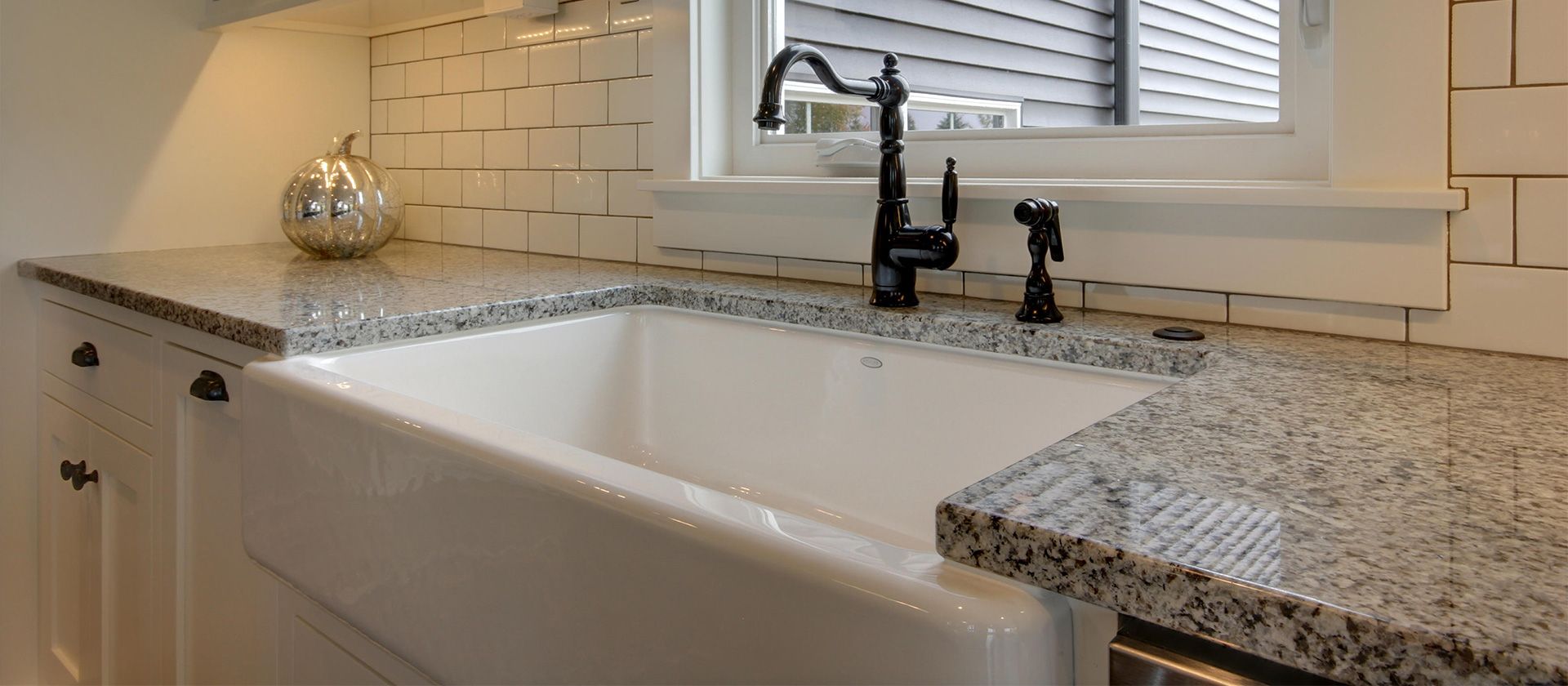
Quartz
Quartz countertops differ from granite, marble, and quartzite countertops in one significant way: quartz is an engineered product while the other three are natural solid stone. The composition of a quartz countertop is approximately 93 percent quartz (a natural mineral) and 7 percent resin binders and pigments. Unlike granite, the resins in quartz are typically vulnerable to the extreme heat of a pan or dish taken directly from the burner or oven to the countertop. Although not near as soft as marble, quartz can scratch in situations where granite will not.
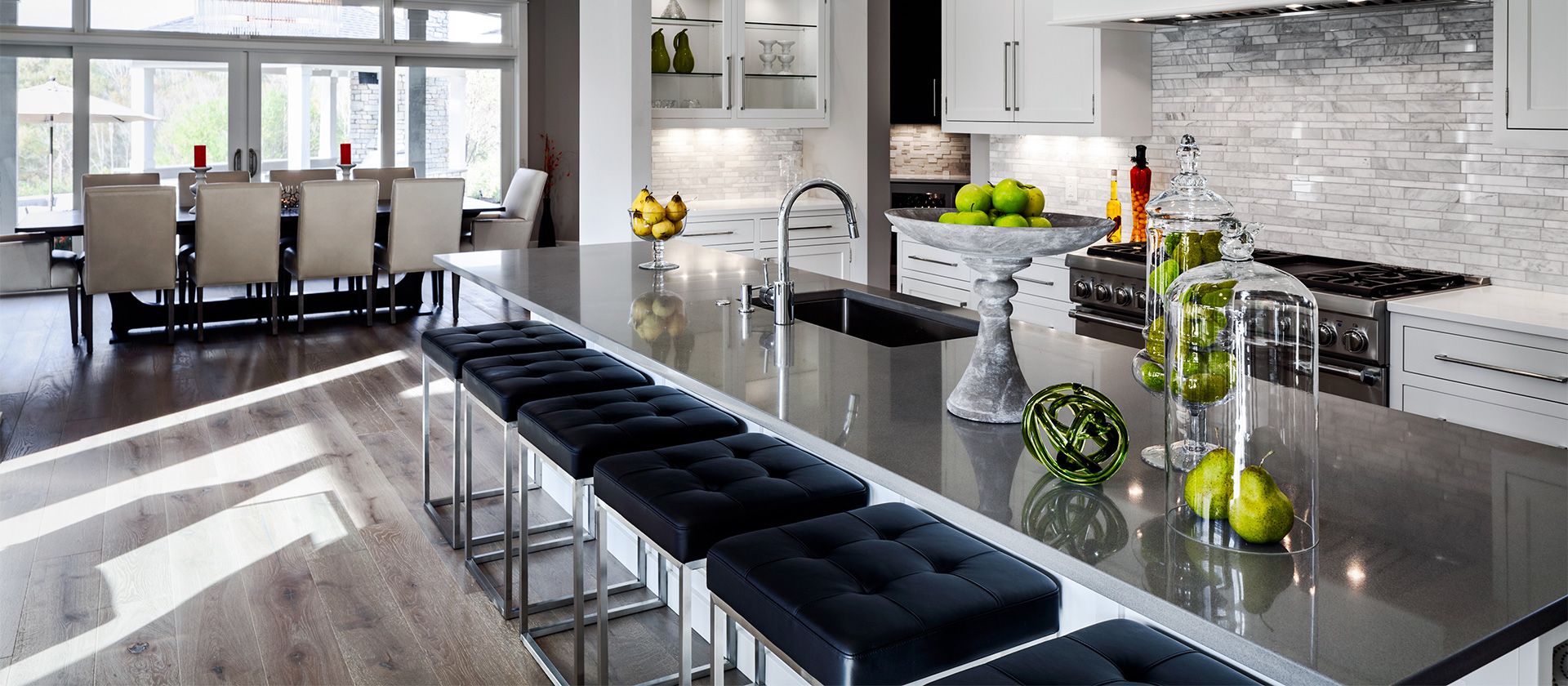
Porcelain
Porcelain intended for countertop use is made from minerals (usually white) that are formed into slabs, coated with pigmented glaze, and fired at high temperature for enhanced strength and beauty. The glaze and colors are used to create a natural stone appearance with veining similar to that found in marble, or to a lesser extent, granite.
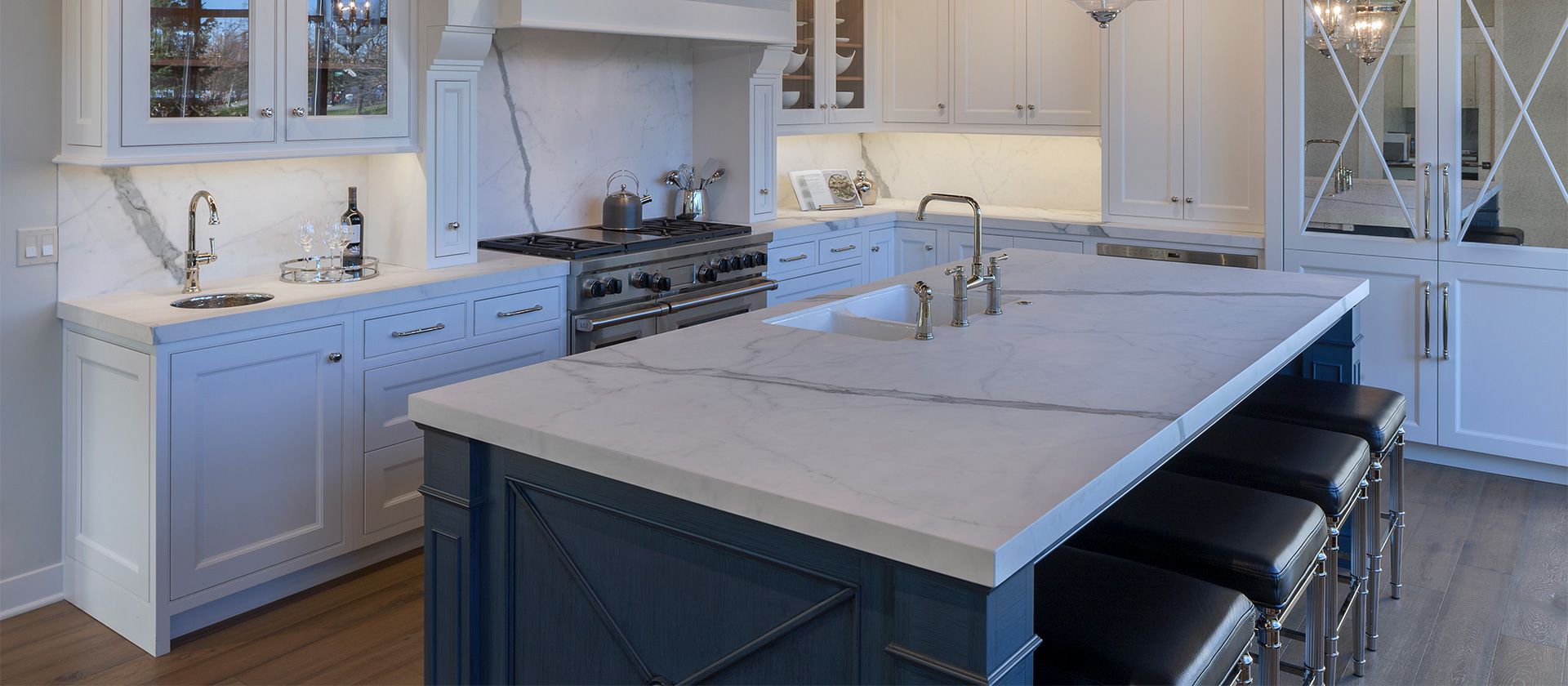
Marble
If you want to take your kitchen or bathroom from ordinary to extraordinary, nothing compares to the timeless elegance of a richly veined marble countertop. Trends may come and go, but marble remains a classic choice for those seeking premium quality and beauty.
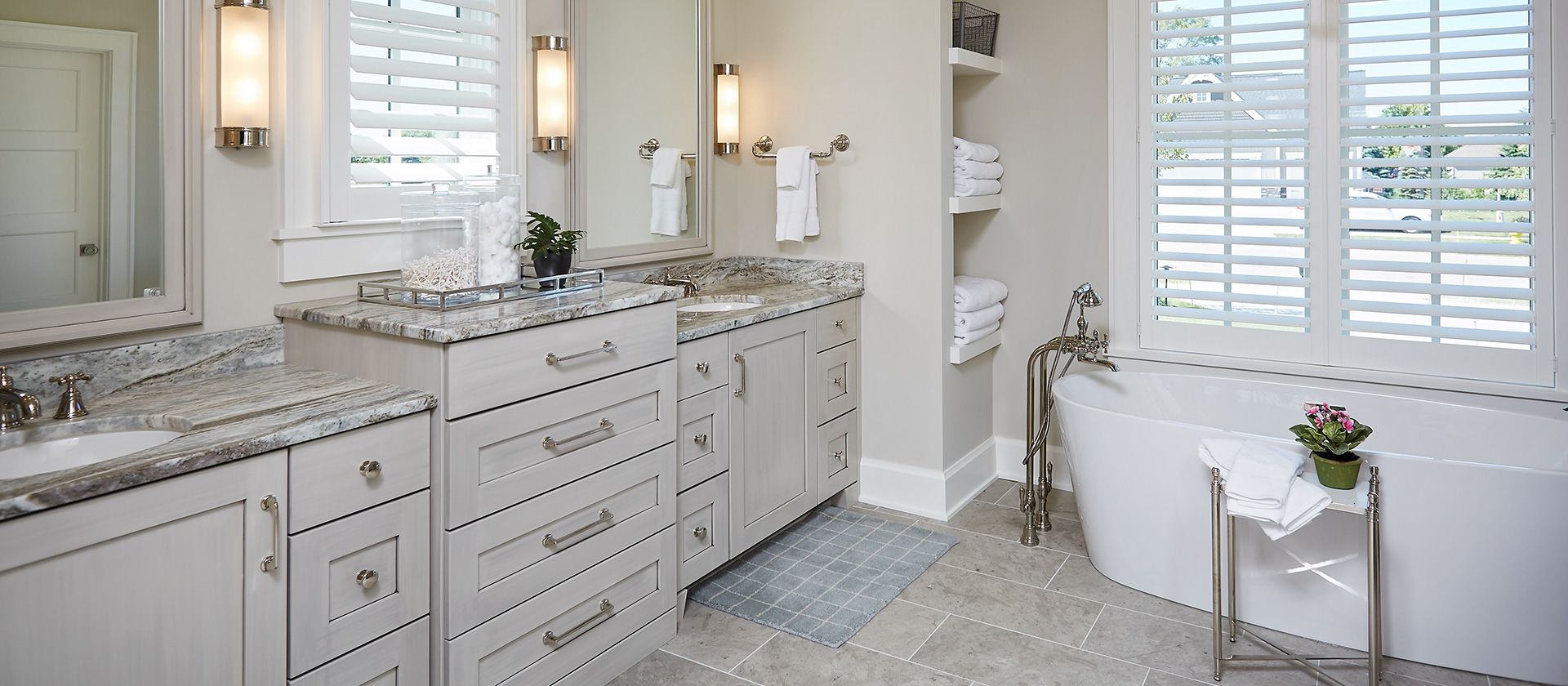
Quartzite
If you're looking for a natural countertop material that's tougher than granite, quartzite is the hardest. Made almost entirely of the mineral quartz, this metamorphic rock is formed when sandstone buried deep beneath layers of rock becomes increasingly hot and compressed, eventually causing individual sand grains to lose their original shape and fuse together into a dense, durable rock called quartzite.
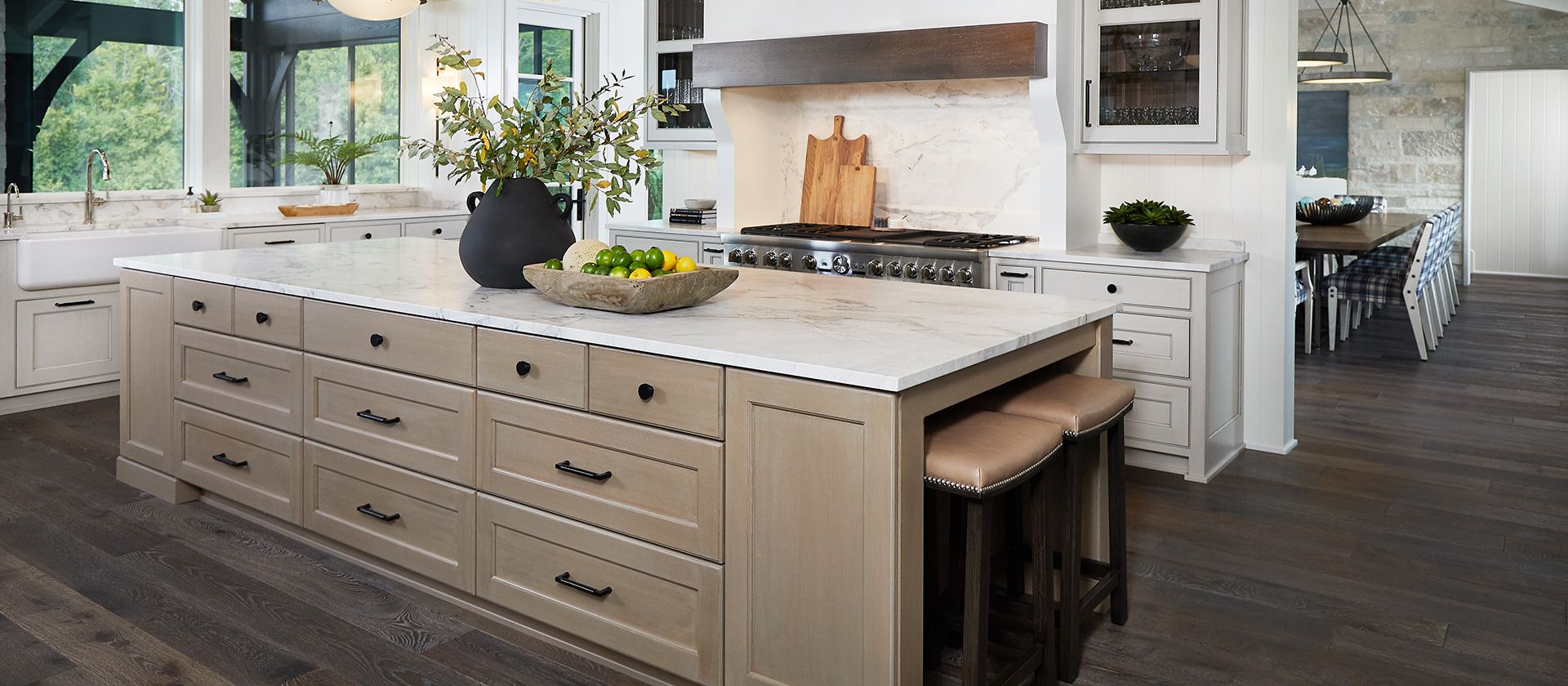
Every slab is an open canvas.
| Features | Granite | Marble | Quartz | Quartizite | Porcelain | Formica Corian | Concrete | Wood |
|---|---|---|---|---|---|---|---|---|
| Man made vs natural | Natural | Natural | Man-Made | Natural | Man-Made | Man-Made | Man-Made | Man-Made/Natural |
| Heat resistance | ••••• | ••••• | •• | ••••• | ••• | • | ••• | •• |
| Sealing maintenance | •••• | •• | ••••• | ••• | ••••• | •••• | •• | • |
| Repair | ••••• | ••• | ••• | ••• | • | •••• | •••• | • |
| Hardness/scratch resistance/durabilit | ••••• | •• | •••• | ••••• | •••• | •• | •••• | • |
| Uniqueness | ••••• | ••••• | •• | ••••• | •• | • | •• | •• |
| Outdoor use | ••••• | •• | •• | ••••• | •••• | • | ••• | • |
| Drop durability | ••••• | •• | •••• | •••• | ••• | ••• | •••• | ••• |
| Fabrication ease | •••• | •••• | ••••• | •••• | • | •••• | ••• | •••• |
| Overall hardness | ••••• | •• | •••• | ••••• | ••••• | • | ••• | • |
Please note: Formica corian, concrete and wood are not offered at Great Lakes Granite Works.
